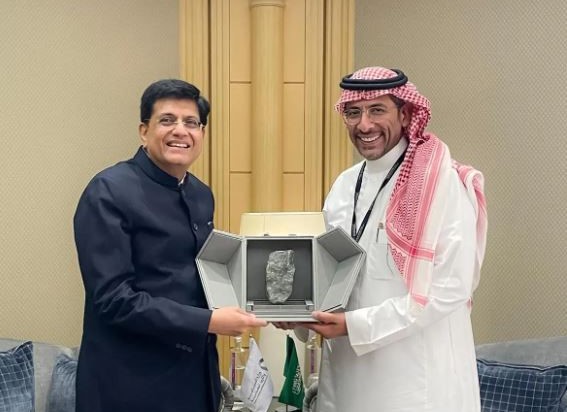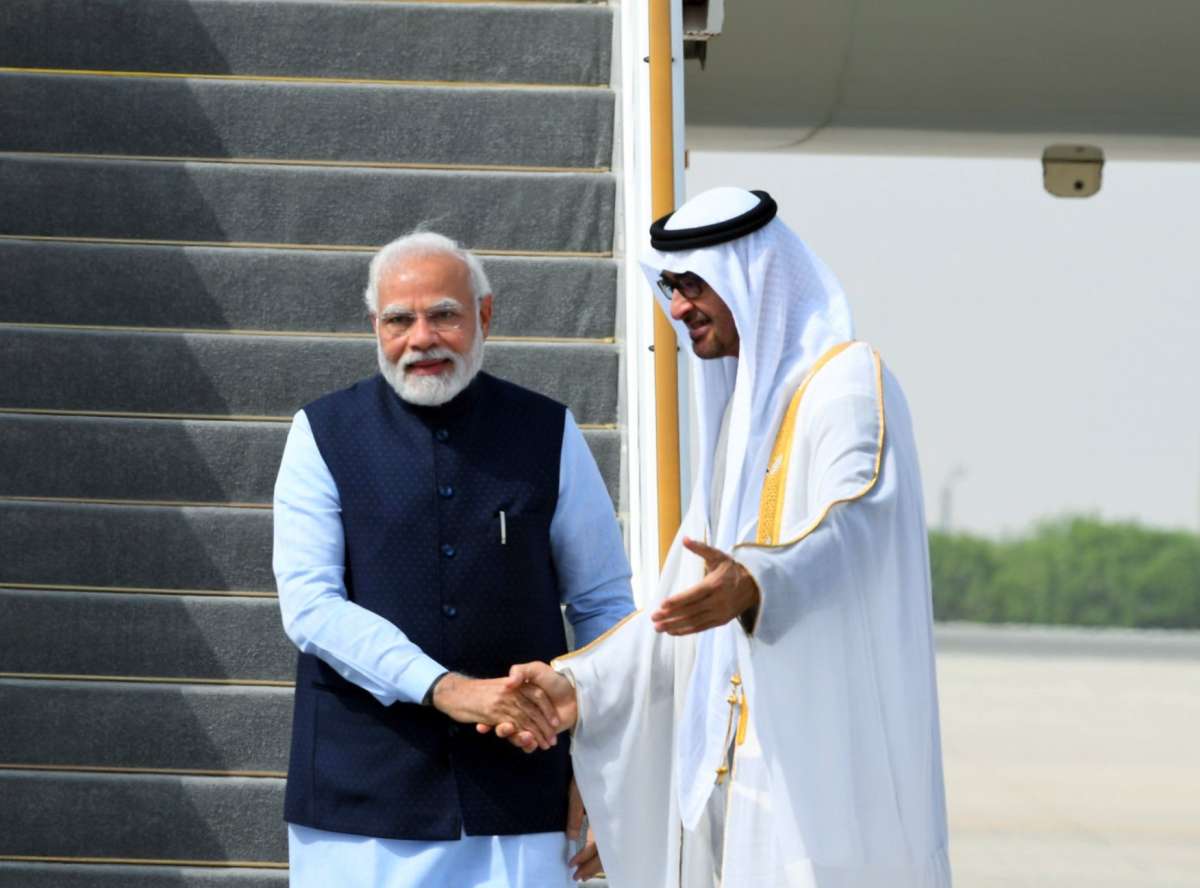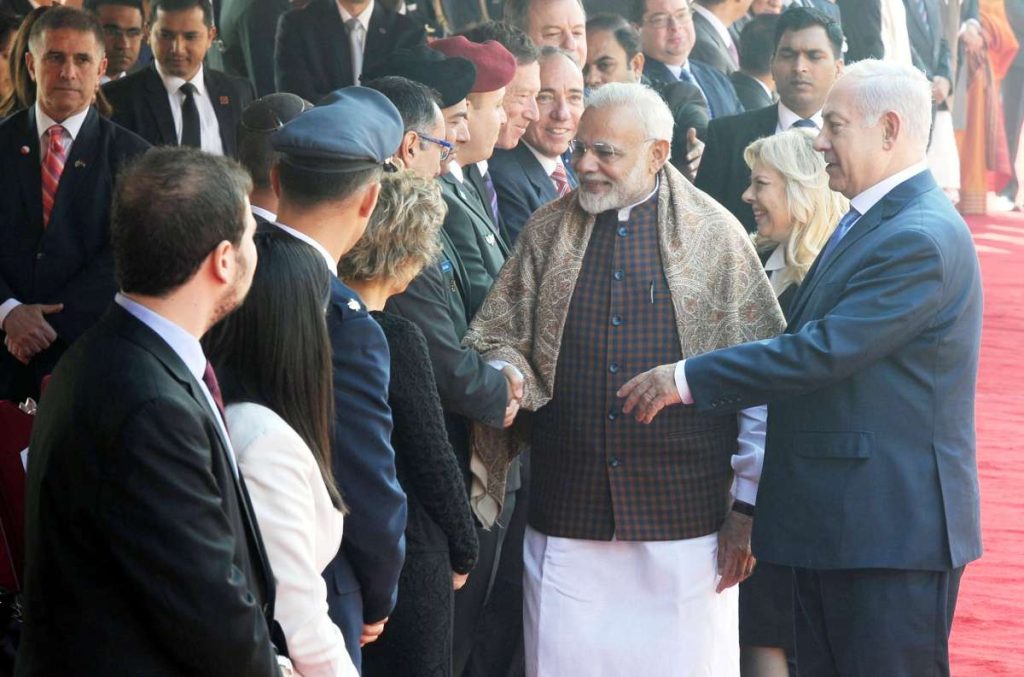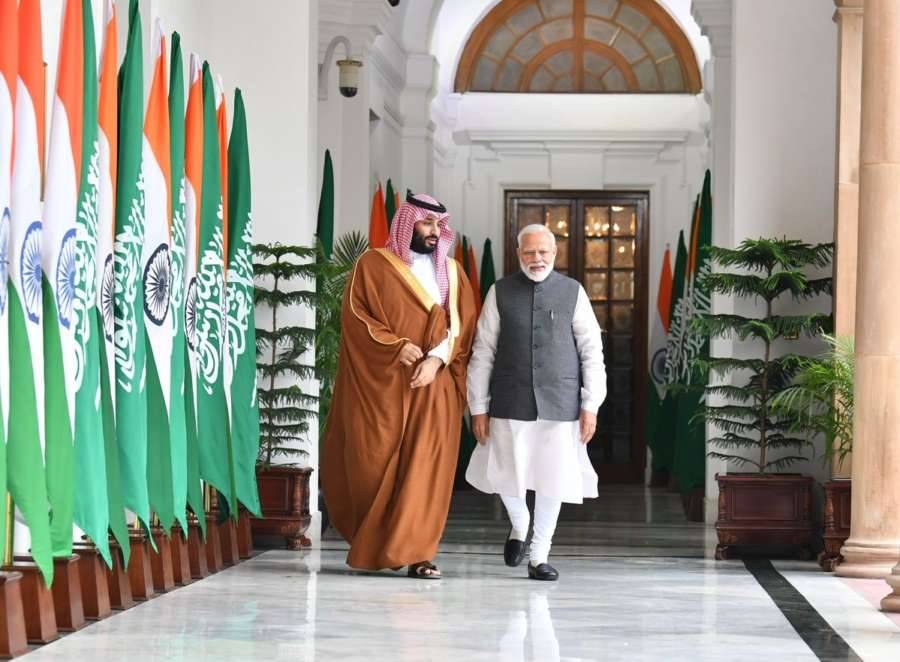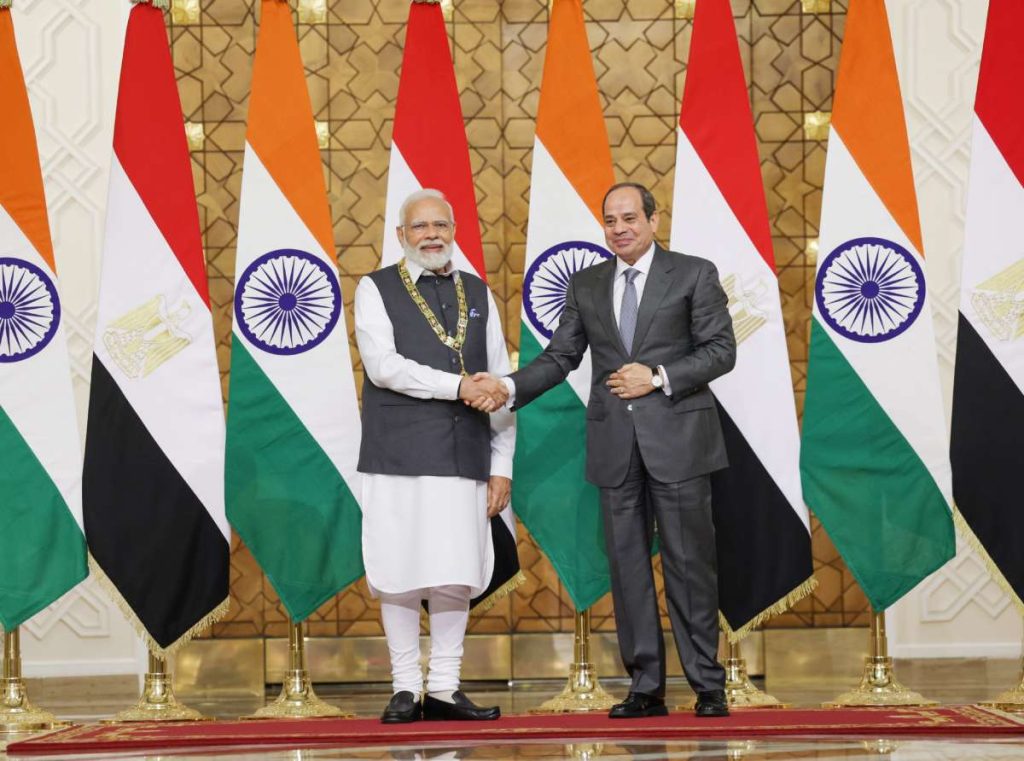Saudi – India to strengthen trade ties; A memorandum of understanding was signed by both parties. Lulu Group Chairman MA Yusuff Ali said the bilateral agreements will give a leap forward in the industrial partnership of the two countries
Indian Minister of Commerce and Industry Piyush Goyal said that India and Saudi Arabia will ensure cooperation in more areas in trade and commerce. Union Minister’s response at the meeting of Saudi-Indian businessmen organized by the Federation of Saudi Chambers (FSC) in Riyadh. The chamber representatives of both the countries signed the MoU in this regard.
In the presence of Mr Goyal and Saudi Chamber President Hassan Al Huwaisi, Saudi Chamber Secretary General Waleed Al Arinan, ITC. Group Chairman and Chamber of Indian Industry President Sanjeev Puri signed the MoU.
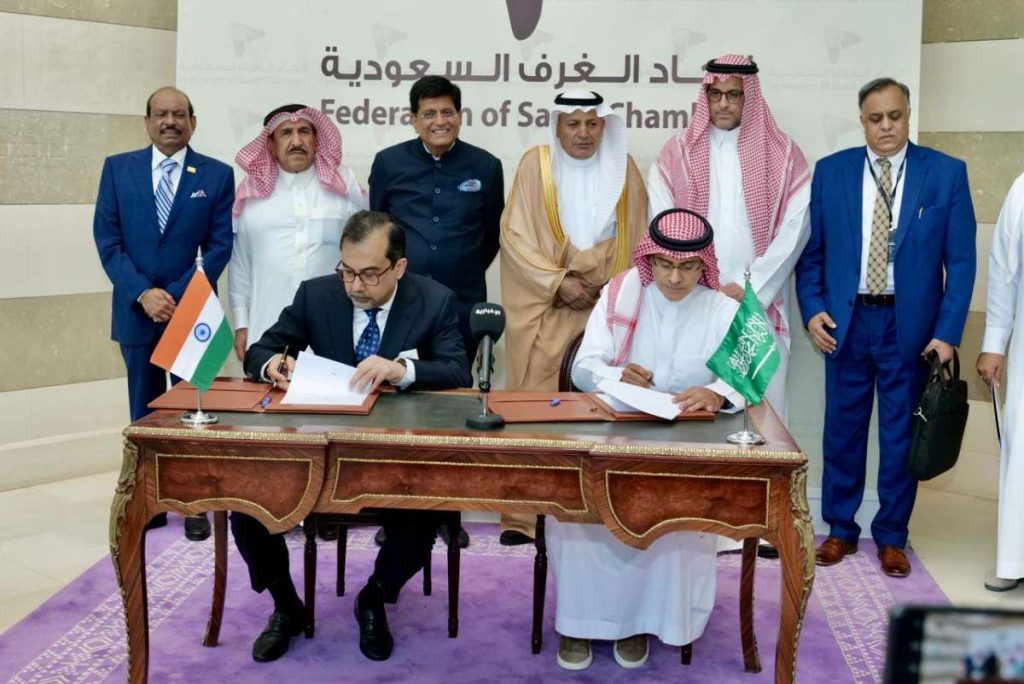
Mr Goyal said that the service of Indian businessmen in Saudi Arabia is commendable. He also explained the investment opportunities in India in the meeting. More than 100 trade and industry representatives from Saudi Arabia and India attended the meeting.
Lulu Group Chairman MA Yusuff Ali said that the bilateral agreements will give a leap forward in the industrial partnership of the two countries. He added that Lulu is moving fast with the progress of Saudi Arabia and gratefully remembers the help, cooperation and support of the Saudi Crown Prince behind the leap towards the goal of Lulu 100 with 58 Lulu hypermarkets in Saudi Arabia.
Round Table Meeting
The Federation of Saudi Chambers (FSC) held a Saudi-Indian roundtable to review investment opportunities in the Kingdom. Mr Goyal, FSC Chairman Hassan Alhwaizy, Indian Ambassador to Saudi Arabia Suhel Ajaz Khan, and over 100 representatives of Saudi and Indian entities and companies took part in the meeting that explored Indian investment prospects in sectors specified in the Kingdom’s Vision 2030, economic trends and developments in India, and the opportunities available to Saudi business owners in this country.
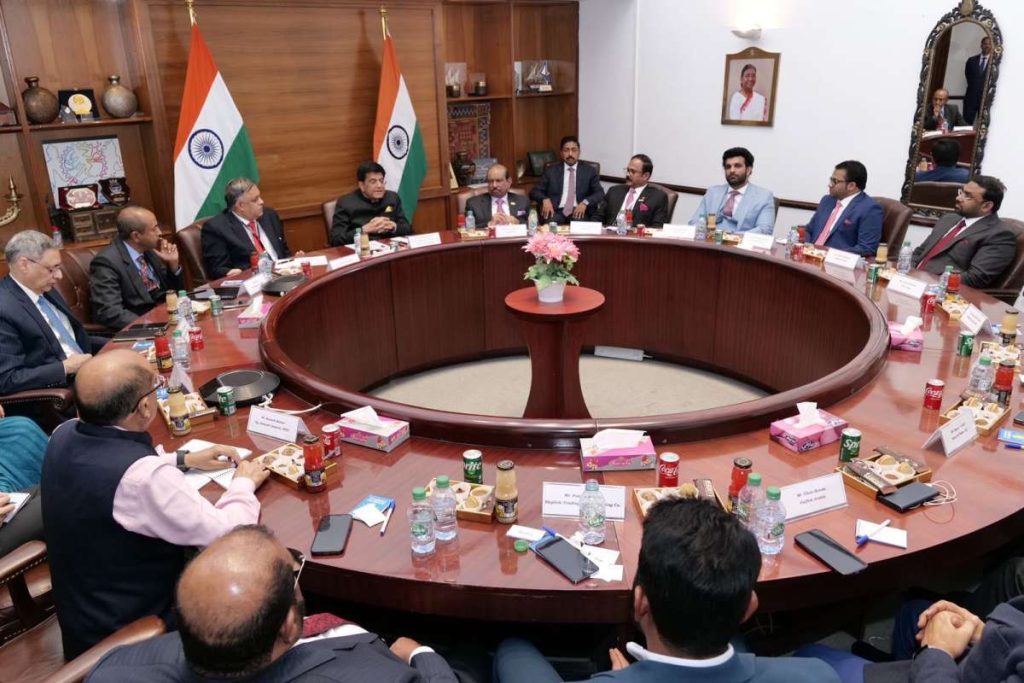
Goyal said that the visit made by His Royal Highness Prince Mohammed bin Salman bin Abdulaziz, Crown Prince and Prime Minister, to India achieved historic results for Saudi-Indian relations. He underscored India’s unique position as an economic and investment destination for foreign investors, with its large market size exceeding 1.4 billion people, and said that his country has an economic vision that targets $2 trillion annually in overall exports.
Goyal said that the Kingdom’s Vision 2030 and the India-Middle East-Europe Economic Corridor (IMEEC) will boost international trade and cooperation, and the volume of future investments in the two counties, highlighting the Indian companies’ desire to enter the Saudi market.
Alhwaizy highlighted India’s 75-year economic partnership with the Kingdom, and the fact that the Kingdom is India’s fourth trading partner and the second largest energy supplier; it registered SAR196 billion volume of trade in 2022, a growth of 51%.
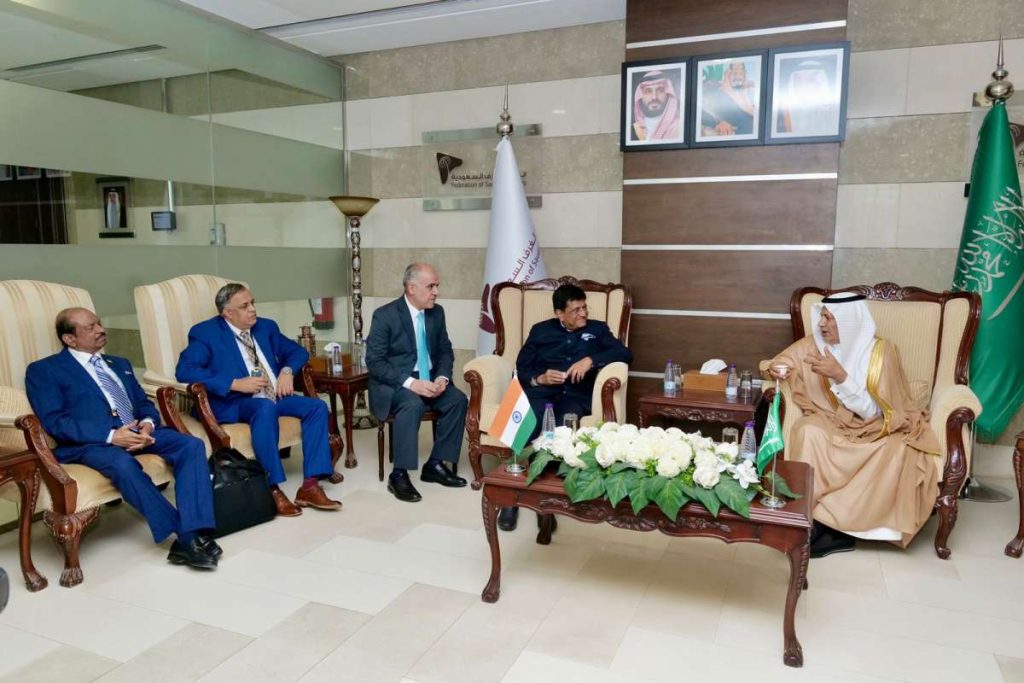
He expressed appreciation for the Saudi-Indian Strategic Partnership Council efforts, which, he said, brought about a major shift in the trade and investment relationship between the two countries.
He said he was looking forward to seeing partnerships in green hydrogen, manufacturing, energy, agriculture, food security, healthcare, and information technology.
Saudi-Indian Business Council Chairman Abdulaziz Al-Qahtani said that in the course of 26 years, the council played an important role in strengthening economic relations and encouraging partnerships between business owners in the two countries, adding that India is an important market for Saudi companies, and Indian investors have great opportunities in the Kingdom.
FSC and the Federation of Indian Industry signed a memorandum of understanding at the meeting, stipulating strengthening economic relations, ensuring coordination between business owners and companies in Saudi Arabia and India, and cooperating in trade and investment.
Mr Goyal also attended the 7th edition of Future Investment Initiative (FII) meet in Riyadh.
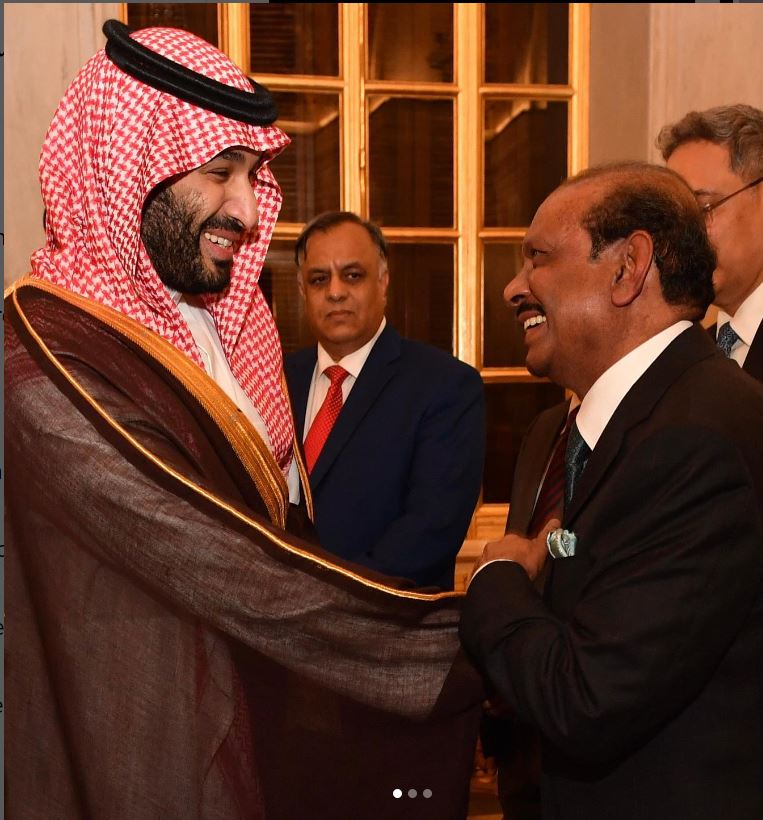
He also met several dignitaries from the host country including Saudi Arabian Energy Minister Prince Abdul Aziz Bin Salman Al-Saud, Commerce Minister Majid bin Abdullah AlKassabi, and Investment Minister Khalid Al Falih.
Goyal addressed the 7th Edition of FII in one of the plenary sessions titled “The Coming Investment Mandate”.
He also co-chaired a conclave session on the theme “From Risk to Opportunity: Strategies for Emerging Economies in the New Industrial Policy Era” along with the Saudi Investment Minister.
This was followed by a bilateral meeting where the two ministers deliberated expansion of investment across diverse sectors to foster economic growth and further enhance strategic partnership between the two countries.
Goyal also held bilateral meetings with Saudi Arabian Industry and Mineral Resources Minister Bandar bin Ibrahim AlKhorayef, CEO NEOM Nadhmi Al Nasr, and Governor of Public Investment Fund (PIF) Yassir Rummayyan.
Discussions pertained to improvement in bilateral relations, especially in the field of commerce and industry.
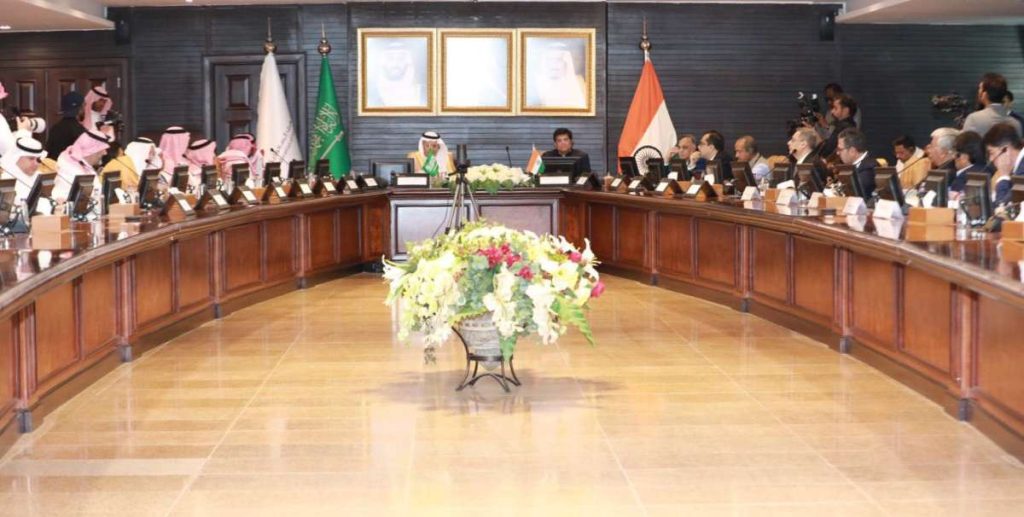
Goyal also took part in the business round table organised at the Federation of Saudi Chambers, and highlighted the multiple opportunities offered by India. The growing trade between the two countries reached an all-time high of $52.75 billion in 2022-23. The conference aimed at further strengthening the economic partnership between the two countries.
Goyal also met World Bank President Ajay Banga and prominent business leaders on the sidelines of the FII. He held interactive sessions with Indian business leaders and the Indian community in Saudi Arabia, both constituting a respectable part of the Saudi economy.
Saudi Arabia is one of India’s most important strategic partners. The level of cooperation between the two countries can also be witnessed with the establishment of India-Saudi Arabia Strategic Partnership Council (SPC).
ALSO READ: Goyal Commends Indian Businesses in Riyadh

